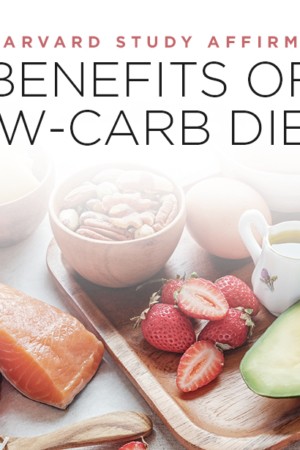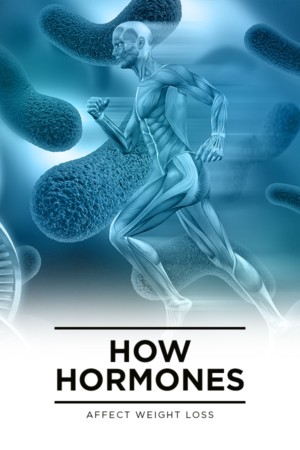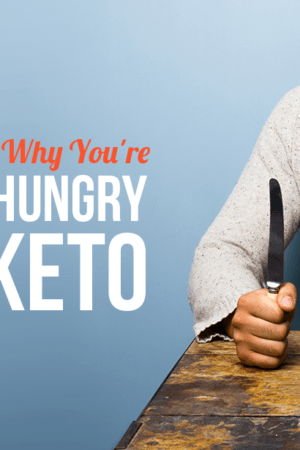What Ghrelin is and How It Works
If you haven’t heard of ghrelin, you’re not alone. This peptide hormone wasn’t discovered until 1996 and was first reported in 1999. The primary role of ghrelin is reflected in both its formal name, derived from growth hormone-releasing peptide, and its informal name, “the growth hormone.” There are multiple interrelated roles this hormone fulfills, the foremost is regulating appetite1.
Ghrelin is produced by cells within the gastrointestinal tract. When your stomach is empty, receptors within the stomach walls absorb ghrelin and it does two things: they send signals to the brain that cause you to feel hungry, and they trigger gastric acid secretion and gastrointestinal motility to prepare the body for taking in food. After you eat, your stomach is stretched; this causes secretion of ghrelin to stop and you stop feeling hungry because your brain is no longer receiving these signals.
How Ghrelin Works in a Limited Calorie Diet
There’s a complicated process in the body known as energy homeostasis which adjusts both energy input (by adjusting hunger signals) and energy output (by adjusting the proportion of energy going to glycogen storage, fat storage, and energy use). Ghrelin is one of the key players in this delicate dance.
In limited calorie diets, your stomach is usually empty; this triggers ghrelin secretion and absorption which causes you to feel constantly hungry. The first thing that happens is your body begins to believe that you’re starving and goes into survival mode.
Energy homeostasis reacts by encouraging energy input and only encouraging those forms of energy output which the body believes will help it survive, e.g., glycogen and fat storage, while discouraging energy expenditure2. This is why one of the common complaints from people on these diets is a lack of energy, even when the body is sitting on literal pounds of potential energy in the form of fat. The body simply doesn’t want to burn those energy stores; remember, it believes that you’re starving, and it wants you to find more food and only use stored fat as a last resort3.
When I say “last resort,” I mean it – the body can actually convert muscle into energy more easily than it can fat. One of the negative side effects of low-calorie diets is that you can actually lose muscle mass before you lose fat.
How Ghrelin Works in a Full Calorie Diet
The keto diet works because it adjusts how your body utilizes energy by changing where that energy comes from. Your body still has all of the calories it needs to function on the keto diet, but it starves the body of excess carbohydrates, which are easily converted by the body into stored fats. You’re eating full meals and this causes the secretion of ghrelin to be controlled. Your hunger cravings are less, your body isn’t trying to save you from starving, and your body begins to get very efficient at burning fat.
On a keto diet, your stomach takes longer to empty because fat and protein take longer to process than carbs. This increased “hang time” in the stomach helps to suppress ghrelin secretion for longer periods of time4. When your stomach is empty in a carbohydrate-based diet, ghrelin is produced and you start to get hunger cravings. Since carbs are burned so quickly, the body knows that you need to get lots of carbs (relatively speaking) and quickly, so lots of ghrelin is produced. When your stomach is empty on the keto diet, the body is already using the metabolic pathway of burning fat for energy, so your body easily switches over to burn stored fat.
Of course, your body knows that stored fat is finite so it still wants you to eat. Ghrelin is still produced but in a controlled fashion. If you were to ask people on a limited calorie diet and people on a full-calorie diet about their experiences, one of the major differences you would note is a lack of cravings in the latter and urges (at times almost uncontrollable) to constantly eat in the former.
Ghrelin and Pleasure
One of the other ways ghrelin works in your body is by activating the pleasure and reward centers of your brain. This should come as no surprise to anyone who has ever had a gourmet meal. Ghrelin’s role in pleasure and rewards isn’t limited to food, however. Researchers found5 that the hormone was positively correlated with sex drive.
Foods that have been highly processed and loaded with sweeteners are often referred to as “highly palatable” by nutrition experts. These types of food can overload the pleasure and reward centers in the brain; this keeps ghrelin flowing and prolongs feelings of hunger, which leads to overeating and weight gain6. Avoiding this effect doesn’t mean you have to eat unpalatable food. Overeating due to pleasure overload is usually mitigated when eating healthy, natural, home-cooked meals.
The Benefits of Understanding Ghrelin
When you understand how ghrelin works you have a better understanding of cravings. Whenever you diet, you’ll experience cravings to some degree – it’s human nature to want what we can’t have. The difference between mental cravings (i.e., the reason why I have a full-size Krispy Kreme tattoo over my heart) and physical cravings is often how much ghrelin your system is producing.
When you experience mental cravings, you want to eat something. When your body experiences physical cravings, it needs to eat. Eventually, you’ll give in to physical cravings, and this happens at the worst times, like when you’re at work and the only way to satisfy your hunger is with fast food or a vending machine. You’ve probably noticed that no diet calls for these things.
Working with your body instead of against it is one of the primary differences between the keto diet and many other popular diets.
NUTRITIONAL DISCLAIMER
The content on this website should not be taken as medical advice and you should ALWAYS consult with your doctor before starting any diet or exercise program. We provide nutritional data for our recipes as a courtesy to our readers. We use Total Keto Diet app software to calculate the nutrition and we remove fiber and sugar alcohols, like erythritol, from the total carbohydrate count to get to the net carb count, as they do not affect your blood glucose levels. You should independently calculate nutritional information on your own and not rely on our data. The website or content herein is not intended to cure, prevent, diagnose or treat any disease. This website shall not be liable for adverse reactions or any other outcome resulting from the use of recipes or recommendations on the Website or actions you take as a result. Any action you take is strictly at your own risk.
- The Brain’s Role in Weight Loss - March 11, 2019
- Making Fat Loss EPOC - March 8, 2019
- Overcoming Plateaus - March 6, 2019




